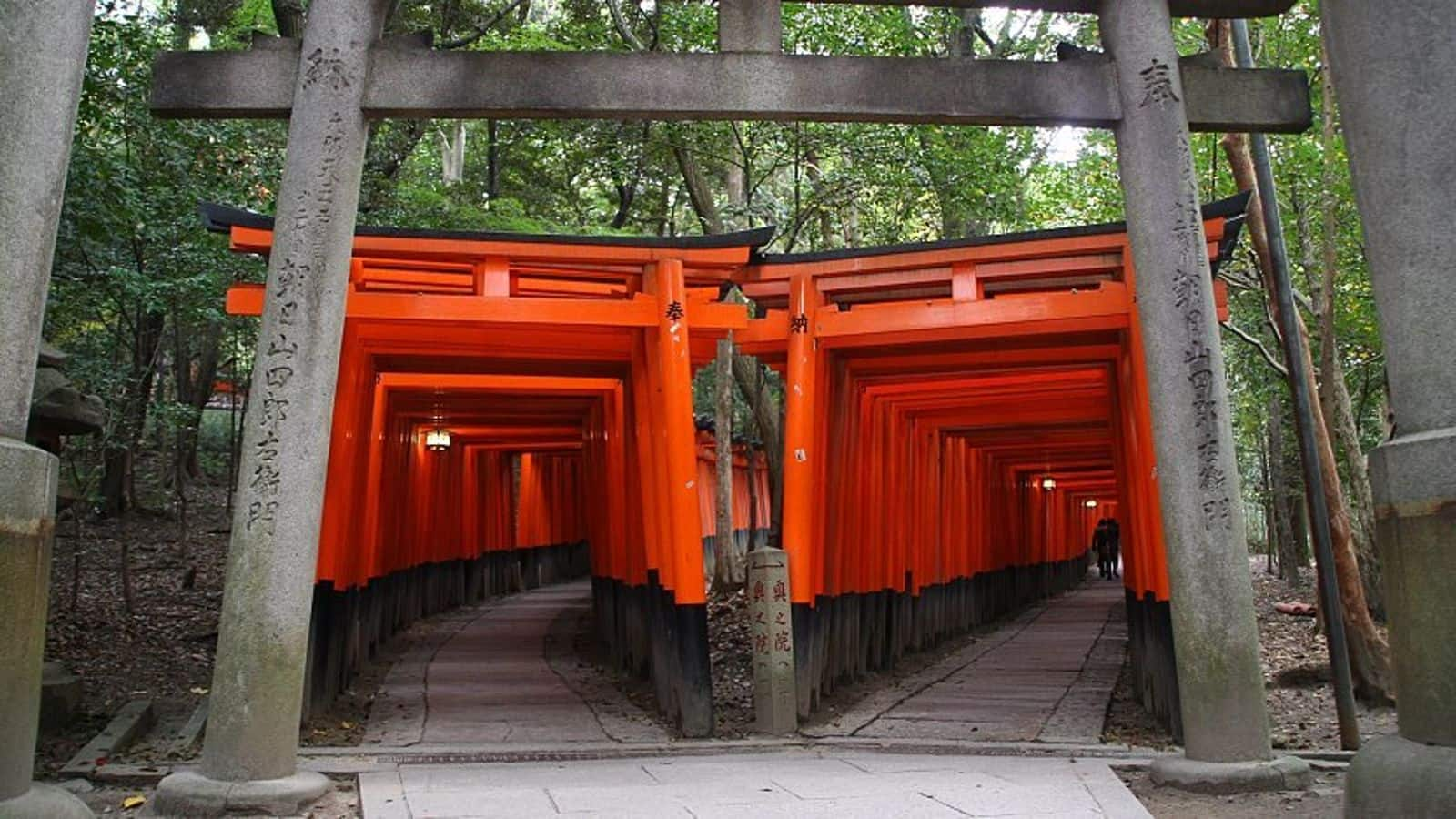
Japanese temples offer a journey through serenity and tradition
What's the story
Kyoto, the ancient capital of Japan, is steeped in tradition and history. This city is a treasure trove with over 1,600 Buddhist temples and Shinto shrines. It invites visitors on a mystical journey through time. The architectural wonders and serene gardens, enduring for centuries, offer a haven of peace away from the bustle of contemporary life.
Vermilion torii path
Fushimi Inari Taisha: Gates to another world
Fushimi Inari Taisha stands out for its striking array of thousands of vermilion torii gates. These gates form a captivating pathway that winds up Mount Inari. Visitors are drawn into a sense of wonder as they traverse this corridor, encountering various subshrines along the way. The experience is enriched by the sight of traditional rituals, deeply rooted in the culture of the area.
Zen reflections
Kinkaku-ji: The Golden Pavilion experience
Kinkaku-ji, known as the Golden Pavilion, is a Zen temple that captivates with its two floors sheathed in gold leaf. It sits elegantly beside a pond that mirrors its splendor, offering a space for quiet contemplation. The garden surrounding it is a showcase of Japanese landscape design, inviting visitors to meander and absorb the tranquil atmosphere that has been carefully cultivated over centuries.
Sand garden artistry
Ginkaku-ji: The Silver Pavilion's elegance
Ginkaku-ji, known as the Silver Pavilion, presents a unique charm with its sand garden's artistry. Though not adorned in silver, the temple's elegance is undeniable. The "Sea of Silver Sand" and meticulously raked patterns here draw visitors into a serene experience. A walk along the moss-covered garden paths offers a tranquil journey through this exemplar of landscape design.
Zen stonescape
Ryoan-ji: Contemplating a rock garden's mystique
Ryoan-ji Temple is famous for its karesansui or dry landscape rock garden, which embodies minimalist beauty. The carefully placed rocks among raked gravel set a scene for meditation and introspection. Visitors are invited to sit and contemplate the garden's abstract forms, finding tranquility in its stark yet profound aesthetic. It is an ideal place for those seeking a peaceful retreat and personal reflection.
Hall of Statues
Sanjusangen-do: A thousand armed forms
Within the wooden confines of Sanjusangen-do Temple, a breathtaking assembly of 1,001 Kannon statues stands. Each figure, representing the goddess of mercy, is intricately carved, showcasing compassion and strength. Visitors can walk through this long hall, surrounded by these remarkable statues. The experience is not just visually stunning but also spiritually enriching, reflecting the temple's dedication to spiritual devotion and artistic craftsmanship.